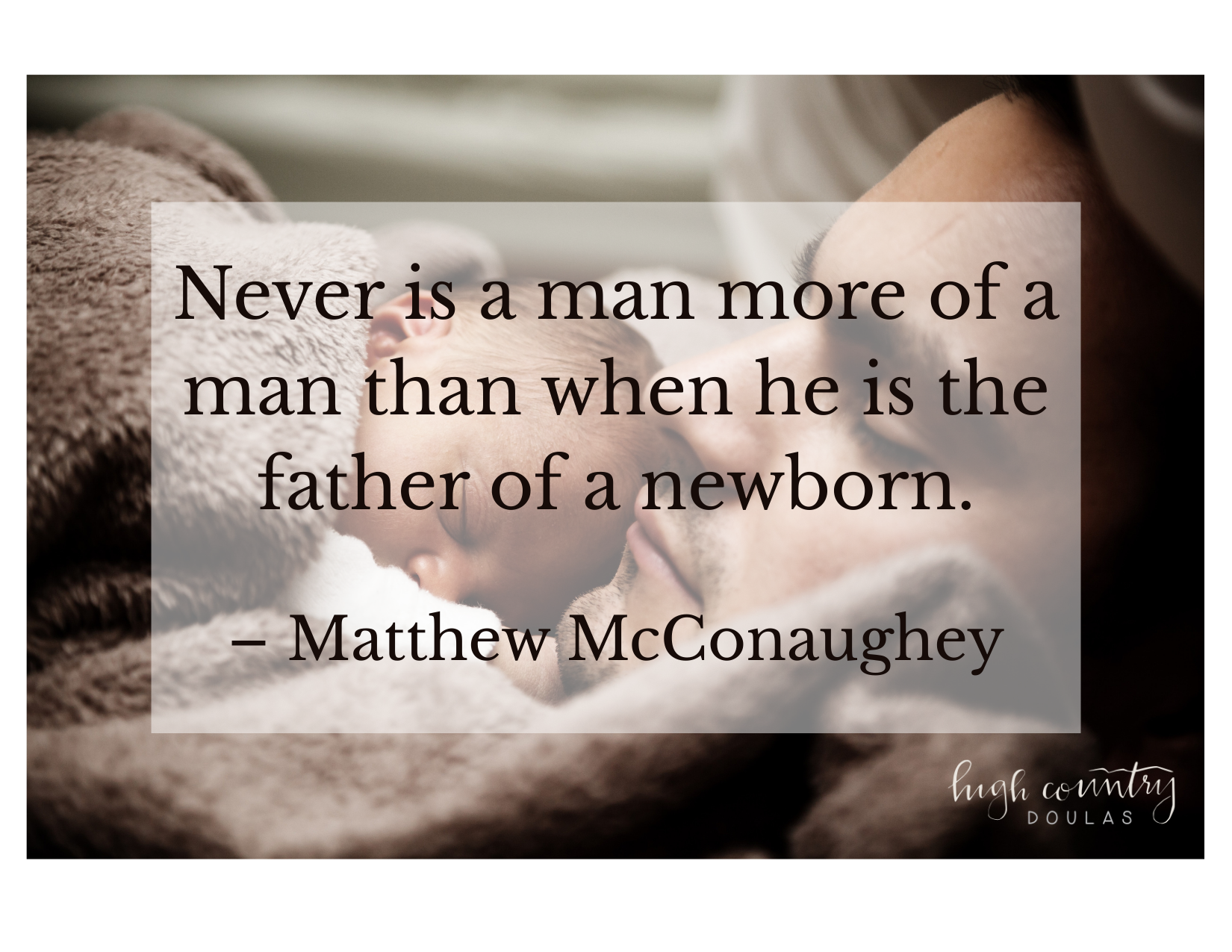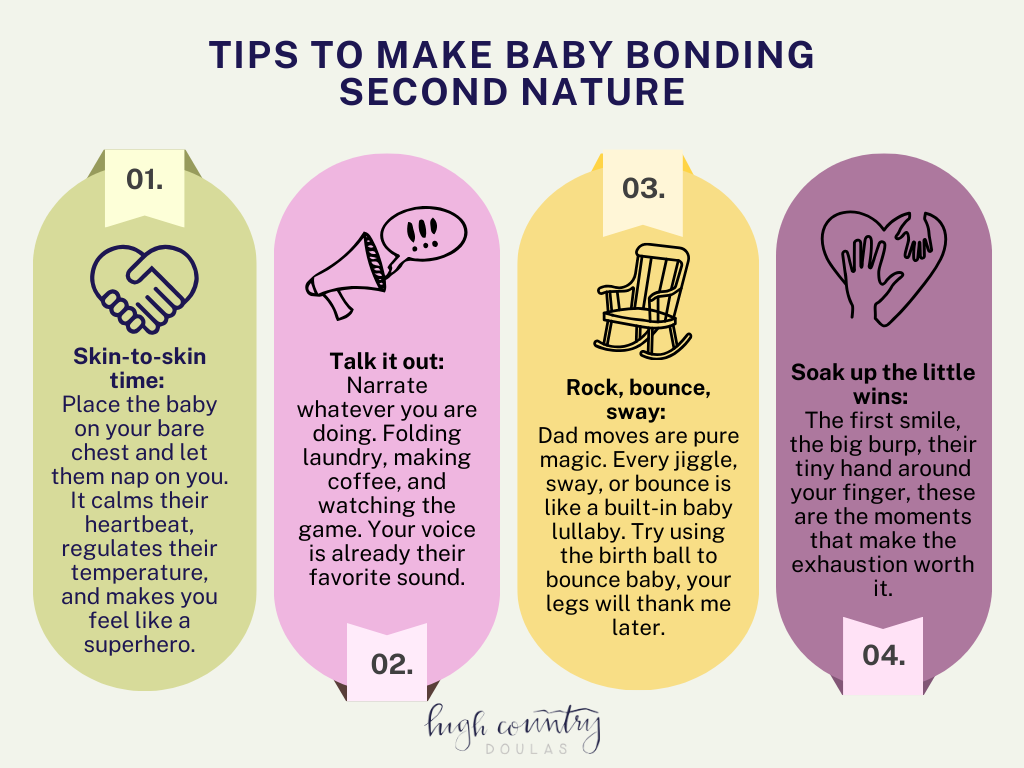Dad Mode: A Postpartum Guide for New & Expecting Fathers
Becoming a dad is like being handed the biggest promotion of your life with zero training, endless overtime, and the cutest boss you’ll ever meet. One moment you’re soaking up newborn snuggles, and the next you’re googling how to swaddle without losing your mind. It’s completely normal to feel stretched thin as you try to support your partner, bond with your newborn, and still take care of yourself. The truth is, dads are a vital part of the postpartum journey, not just as helpers, but as parents who need support. When dads care for their own mental health, they’re better equipped to show up for both mom and baby, creating a stronger and healthier family from the start. Postpartum might seem like a mom's world, but the truth is, dads are living it too.
Nothing will make you as happy, as sad, as exhausted, or as incredibly proud as fatherhood.
About 1 in 10 dads go through postpartum depression, and first-time dads are almost twice as likely to feel it. Life with a newborn can hit hard. You are running on no sleep, wondering how diapers cost so much, trying to be a supportive partner, and figuring out your new role as a dad. On top of that, a lot of dads feel like they have to stay tough and not let anyone see them struggle. That can make the hard days even harder.
The signs of paternal postpartum depression can look a lot like what moms experience:
Persistent sadness or irritability
Feeling disconnected from your partner or baby
Changes in sleep or appetite
Withdrawing from friends and family
Feeling hopeless, guilty, or overwhelmed
Ignoring these struggles won’t make them disappear; in fact, it can have an effect on your whole family. Research has shown that when either parent experiences untreated depression, it can impact a child’s long-term development, social skills, and family relationships. Supporting dads’ mental health means supporting the whole household.
Even Superdads Need Support
Talk to your doctor: Primary care providers, therapists, and counselors can screen for depression and connect you with resources.
Consider a Post partum doula: They can ease the transition into parenthood supporting mom, helping with newborn care, and giving dads confidence in their role with hands-on tips and encouragement.
Reach out to Postpartum Support International: They offer a free, confidential dad-specific helpline and online support groups.
Connect with other fathers: Sharing your experience with other dads can help you feel less alone and better understood.
Lean on your support system: Don’t be afraid to ask friends or family for help with meals, chores, or even just a listening ear.
Prioritize small self-care steps: Rest when you can, get outside, and keep up with healthy routines like eating well and moving your body.
Happy Mom, Happy Home:
When a new baby arrives, the spotlight often shifts completely onto the little one, but moms need just as much care and attention during this season. Postpartum recovery is no small feat physically, emotionally, and mentally. Moms are healing, adjusting, and running on very little sleep, all while learning how to care for a newborn. That’s a lot to carry, and even the strongest moms need consistent support.
For dads, this is your chance to show up in a way that makes a real difference. Small things matter, like making sure she eats a real meal instead of just grabbing a snack, letting her nap without interruption, or taking over a few chores so she can breathe. Support also looks like listening without trying to “fix” everything, validating her feelings when the days feel long, and reminding her she’s not in this alone. When dads step in with patience, encouragement, and practical help, it not only lightens mom’s load but also strengthens the whole family dynamic. The truth is, when mom feels cared for, everyone feels it.
Building connection one snuggle at a time:
Here’s the part most dads don’t realize: you don’t need to wait for your baby to be older to bond. You matter from day one. Babies know your voice, your touch, your smell, and the more you show up, the stronger that connection becomes. You might not be the one with the milk supply (though you’ll be on bottle duty if that’s part of the plan), but you bring something just as important: your presence. And spoiler alert, your baby doesn’t care if you’re a pro at swaddling or if your singing voice is a little questionable. They just want you.
Becoming a dad is a wild mix of joy, exhaustion, doubt, and love. The good news is, you’re not expected to have it all figured out right away. Postpartum is a time to grow, connect, and soak in the little moments. It’s a chance to support your partner, build a new bond with your baby, and learn as you go. You don’t have to be perfect. What matters most is showing up with patience, love, and support. Take care of your partner, take care of your baby, but don’t forget to take care of yourself, too. You’re building a foundation for your family that will matter for years to come, one diaper change at a time.
Sources:
https://utswmed.org/medblog/paternal-postpartum-depression/
https://www.todaysparent.com/baby/newborn-care/a-rookie-dads-guide-to-newborns/



